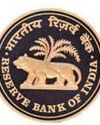
When India lost the arbitration case with Australian mining company White Industries in 2011, the first such defeat, it prompted a reassessment of the country's approach towards investment treaties, then known as Bilateral Investment Promotion Agreement (BIPA).
India subsequently came up with a model Bilateral Investment Treaty (BIT) document in December 2015 and unilaterally terminated BIPAs with 77 countries, including the European Union, asking them to renegotiate the terms based on the model BIT. The key contentious issue was the investor-state dispute settlement (ISDS) mechanism, under which an investor can drag a country to international arbitration in case it finds the rules in the host country discriminatory or in violation of the investment agreement between the two countries.
Earlier, under BIPA, foreign investors had broader and more direct access to international arbitration for resolving disputes - for instance, in the case of White Industries - bypassing India's judicial system. However, under the model BIT, investors must first exhaust all domestic legal remedies, typically having to go through Indian courts for at least five years before resorting to international arbitration.
This was designed to protect regulatory sovereignty and minimise frivolous or premature international claims.
The model BIT did not take off. Only four countries - Belarus, Kyrgyzstan, Taiwan, and Brazil - signed investment treaties with India. None of the four is a major source of foreign direct investment (FDI) sources for the country.
Departure from model
In a departure from the model BIT, India has now concluded a BIT with the United Arab Emirates (UAE) by reducing the local remedy time period from five years to three, after which foreign investors can seek international arbitration if the Indian judicial system is unable to resolve the dispute.
Diese Geschichte stammt aus der October 18, 2024-Ausgabe von Business Standard.
Starten Sie Ihre 7-tägige kostenlose Testversion von Magzter GOLD, um auf Tausende kuratierte Premium-Storys sowie über 8.000 Zeitschriften und Zeitungen zuzugreifen.
Bereits Abonnent ? Anmelden
Diese Geschichte stammt aus der October 18, 2024-Ausgabe von Business Standard.
Starten Sie Ihre 7-tägige kostenlose Testversion von Magzter GOLD, um auf Tausende kuratierte Premium-Storys sowie über 8.000 Zeitschriften und Zeitungen zuzugreifen.
Bereits Abonnent? Anmelden

Centre readies plan to sell up to 20% in 5 PSBs
Govt may consider both OFS and QIP routes for diluting its stake

RBI Frees Up Bank Capital With NBFC Risk Weight Rollback
With bank loan growth slowing over the past year, the Reserve Bank of India (RBI) has decided to reverse its decision to increase the risk weight of bank loans to non-banking financial companies (NBFCs), which will result in a substantial release of capital for banks.

Delhi lost ₹2K cr due to liquor policy: CAG
A Comptroller and Auditor General (CAG) report, tabled in the Delhi Assembly on Tuesday, has faulted the excise policy introduced by the previous Aam Aadmi Party (AAP) government in 2021 to have caused cumulative losses worth over ₹2,000 crore to the Delhi government.

Capex slows in FY25 but key infra, power players set to benefit
Post-election capital expenditure (capex) has been weak at 2 per cent year-on-year (Y-o-Y) in M9FY25.
Nifty nears 2nd-worst losing streak in 30 yrs
Amid the fall, one in every five Nifty stock is more than 28% down over the past five months
Ericsson to help Airtel shift to 5G standalone
Ericsson will be supplying key 5G equipment to telecom operator Bharti Airtel for seamless transition to a commercially live, full-scale 5G Standalone (SA) network over time, the Swedish telecom gear maker said on Tuesday.
Road to Decentralisation
Rural local bodies need to be strengthened
Bitcoin slides below $90K as crypto selloff gathers steam
The Fall
Sebi slaps ₹5 cr fine on ICCL for audit, cybersecurity lapses
The Securities and Exchange Board of India (Sebi) on Tuesday imposed a ₹5.05 crore penalty on Indian Clearing Corporation Ltd (ICCL), a wholly owned BSE subsidiary, for failing to comply with cybersecurity and system audit norms.
Microfinance loan book shrinks 3.5% to ₹3.85 trillion in Dec qtr
The gross loan portfolio in the microfinance segment shrunk by 3.5 percent year-on-year (Y-o-Y) to ₹3.85 trillion during the third quarter of financial year 2025 (Q3FY25) as the period was marked by curtailed funding and strict credit underwriting.